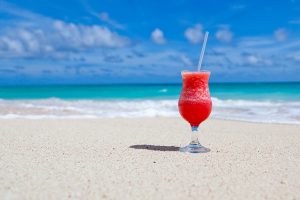Some consequences of drinking do not rely on the amount, or how often one drinks. As we all know, alcohol use can increase the possibility of legal implications: driving under the influence, drinking underage, and any dangerous behaviors engaged in when we consume alcohol. We may say something that we “didn’t mean” or neglect to remember to follow through on a promise we made.
There are possibilities of adverse consequences from drinking for those who have not been diagnosed with an alcohol use disorder. For those who have been identified as having an alcohol use disorder, it is even more dangerous. If you have an actual use disorder, one drink is never enough. Your tolerance may have decreased upon cessation of alcohol for any timespan. However, you will never forget the feeling that alcohol once gave you. As an alcoholic, you will always be chasing that same feeling if you continue to drink at all. Relapse does not discriminate between whether or not you have received treatment.
Moderation Versus Alcohol Use Disorder
Just as the need for more opiates, cocaine, or cannabis comes about the more you use, a higher amount of alcohol is required to feel its effects once tolerance has increased. 16 million American individuals are diagnosed with an alcohol use disorder annually. The DSM-5 helps clinicians to diagnose whether your drinking could be considered a syndrome. It requires two of 11 symptoms to be met within a year period for diagnosis. The symptoms can be considered mild, moderate, or severe in nature.

What are the indicators of alcohol use disorder?
- Your drinking has created problems between you and your family or friends. Has it come between your caretaking of your family or completing your household duties?
- Have you been ill from drinking to the point that it caused difficulties, including tardiness or not showing up for school or work? Has your drinking affected your job or education?
- Have you had an intense desire or urge to drink alcohol? If so, you may be suffering from what is called a “craving.”
- Have you ever drunk more than you first planned to? Did you ever drink for a longer period than you originally said you were going to?
- Have you ever tried to stop drinking unsuccessfully? How about trying to cut down your alcohol intake without being able to do so?
- Do you devote an exuberant amount of time to your drinking? How about the time spent getting over the effects of not having alcohol or attending to your hangovers?
- Is your pleasure coming mostly from your drinking? Have you stopped participating in things that you used to enjoy or be interested in just so you could partake in more alcohol consumption?
- Has your drinking played a part in you being in a not-so-safe situation? This could include driving under the influence, partaking in unsafe sexual activity, or even walking in an area that is considered risky by others.
- Has your drinking led to depressive or anxious feelings? Did you continue to drink even though you felt this way due to alcohol? Have you had blackouts though continued to drink?
- Have you experienced increased tolerance? Have you needed more to feel the effects of alcohol?
- Have you had withdrawal symptoms? These could include: hallucinations, difficulty sleeping, trembling or tremors, irritability, nervousness, unhappiness, difficulty staying still, queasiness, or perspiring.
An Alternative Treatment Center Can Help if Your Drinking Spirals Out of Control
Sometimes, we need an extra nudge in figuring out how to find or regain our sobriety. Unfortunately, less than 10% of individuals seek treatment for their alcohol use disorder. There is no shame in asking for help when that aid comes from the right individuals. Our trained professionals at Discovery Place of Burns, Tennessee are just a phone call away. They are standing by 24 hours a day, every day to help you and your loved ones. We even have 12-Step recovery guides to aid you on your journey. Contact us today at 1-800-725-0922 to learn more about our various alternative treatment programs.


